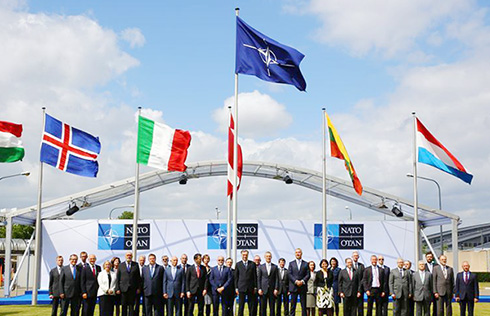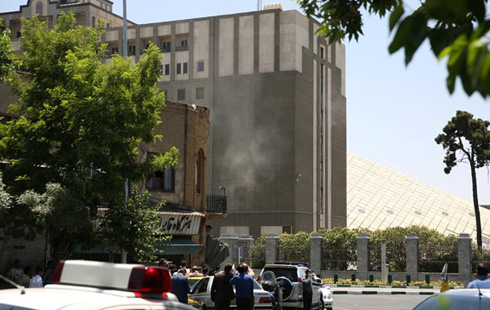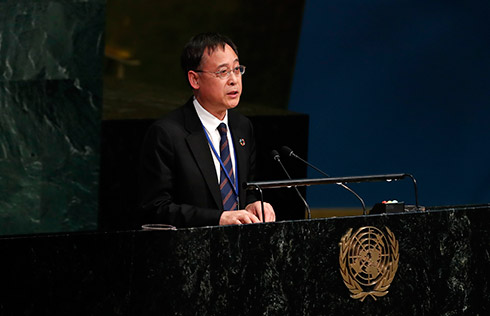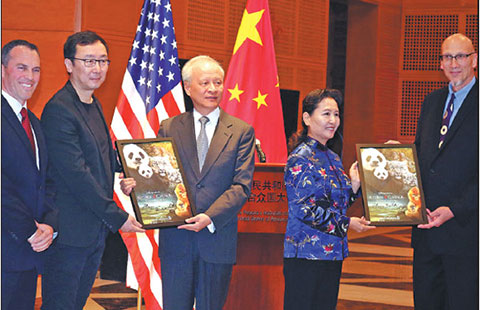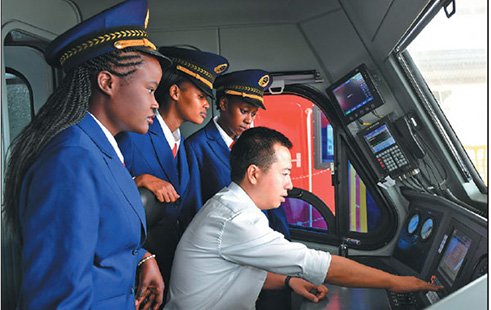Confucius Institute thrives in Latvia
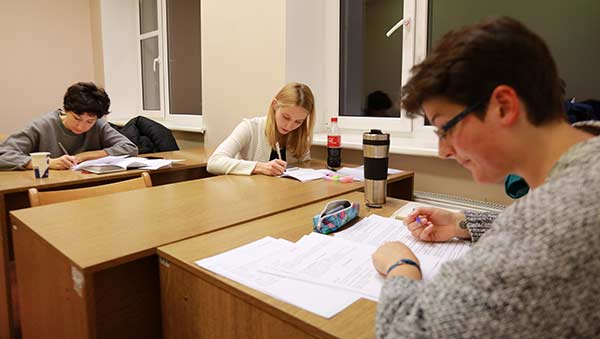 |
|
Jana Danica (right) teaches a class at the Confucius Institute in Riga, Latvia, on Thursday. Danica, the institute's only Latvian teacher, got her master's degree in China. REN QI/CHINA DAILY |
Enthusiasm for learning the Chinese language, literature and culture is higher than ever in Latvia due to excellent bilateral relations and growing economic connections, and the visit of Premier Li Keqiang will further boost Sino-Latvian language and cultural exchanges, said Shang Quanyu, director of LUCI-the Confucius Institute at the University of Latvia.
The Confucius Institute in Riga, the capital, is celebrating its fifth anniversary after the university and Hanban-the Confucius Institute headquarters-signed an agreement establishing LUCI in April 2011.
Shang, 55, said there is one Confucius Institute in Latvia, at the University of Latvia, and four Confucius Schools, in Riga and other cities.
"The newest school is at Riga No 34 High School. The course began at the school in 2012, and in 2016 the class was approved by Hanban as the fourth Confucius School," said Shang, who is LUCI's second director. "More cities are contacting us, expressing their desire to open a Confucius School."
The institute has 11 teachers, 10 of whom come from South China Normal University in Guangdong province, a partner university with LUCI.
Shang said these teachers are called volunteers because they are paid less than formal university teachers, and they stay in Latvia for less than two years.
However, many more apply for the volunteer teaching posts every year, and a series of strict exams select the most qualified teachers.
The Chinese courses at the Confucius Institute in Latvia are divided into different classes based on language skills. The elementary class mainly deals with daily vocabulary, phrases, sentence patterns and basic communication, while advanced classes encourage students to express themselves in pure Chinese, emphasizing a balanced development in character writing and the spoken and written language.
Students also attend classes on cultural topics, such as Chinese history, cities, ethnic groups, traditional music, customs, tea culture, calligraphy, paper-cutting, food and movies.
Shang said Chinese culture is attracting increasing numbers of Latvians to the courses.
Jana Danica, LUCI's only Latvian teacher, said her students range in age from 25 to 70. Some have studied Chinese for decades, and some are just beginners.
Most Latvian students are attracted to Chinese by the culture, and student numbers have increased sharply in two years, she said.
Danica is a huge fan of the Chinese language and culture and studied Chinese for four years at the University of Latvia before living in Lanzhou, Gansu province, for five years, where she earned her master's degree.
On Thursday, Danica gave a class on simultaneous translation for a higher advanced class focusing on China's criminal law and a story by Lu Xun (1881-1936), a leading figure in Chinese modern literature.









